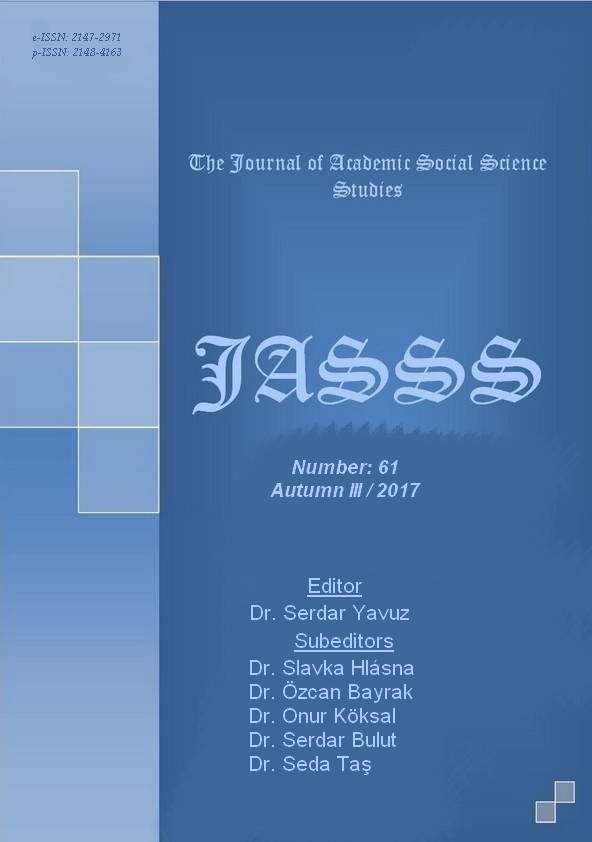Author :
Abstract
1980’ler, basının medyaya dönüştüğü ve yatay, dikey, çapraz tekelleşmelerle mülkiyet yapısının değiştiği yılları temsil etmektedir. Küresel ölçekte gözlemlenen bu dönüşüm, neoliberal ekonomi politikaların hayata geçirildiği Türkiye’de de yansıma bulmuştur. Bunun sonucunda, 1980’lere kadar mesleği gazetecilik olan patronlar tarafından kontrol edilen basın sektörü, 1980’lerden itibaren mesleği gazetecilik olmayan medya dışındaki sermaye gruplarının egemen olduğu yeni bir sahiplik yapısına doğru bir dönüşüm sürecine girmiştir. Gazete sahipleri, bir yandan gazetelerin üretim ve dağıtım ayağını kontrolleri altına almaya, diğer yandan da radyo, dergi, televizyon, internet gibi mecralara yönelmeye başlamışlardır. Öte yandan deregülasyon ve özelleştirme politikalarıyla medya dışındaki sermaye grupları için bir yatırım alanına dönüşen medya, kâr maksimizasyonunu ön planda tutan ticari bir yapı içinde faaliyet göstermeye başlamıştır. Bu gelişmeler, basının ekonomik ve politik düzlemle bütünleşmesini, dolayısıyla geleneksel işlevlerinin sorgulanmasını da gündeme getirmiştir. Medyadaki bu yapısal dönüşüm, yaygın medya kuruluşlarında olduğu kadar, yerel ve bölgesel medya kuruluşlarında da karşımıza çıkmaktadır. Buna karşın, akademik çalışmalarda, genellikle, yerel kamuoyunun oluşumuna veya yerel demokrasi sürecinin gelişimine yaptığı katkı üzerinden ele alınan yerel ve bölgesel medya, mülkiyet ilişkilerinden bağımsız değerlendirilmektedir. Samsun’daki Haber Medya Grubu, medyadaki mülkiyet ilişkilerinin yereldeki dönüşümünü temsil eden önemli bir örnek niteliğindedir. Bu çalışmada, eleştirel ekonomi politik yaklaşım bağlamında, Haber Medya Grubu, derinlemesine görüşme tekniği kullanılarak incelenmiştir.
Keywords
Abstract
1980’s represent the years when the press turned into the media and the structure of property changed via horizontal, vertical and cross monopolizations. This transformation which was observed in global scale took place in Turkey as well where neoliberal economy politics were put into practice. Consequently, the press, as a sector controlled by the bosses whose occupation was journalism till 1980’s, entered a transformation process to be controlled by the non-media capital groups whose occupations were not journalism, after 1980’s. Thereafter, the newspaper owners not only started to take control of the printing and distribution process but they also headed for other sectors such as radio, magazine, television and internet. On another hand, the media which became a field of investment for non-media capital groups due to deregulation and privatization policies, started to conduct business within a commercial body for which profit maximization was of importance. These developments brought integration of the press with the economic and political platform and thereby questioning of its traditional functions. This structural transformation in the media has been observed in the local and regional media organizations as much as in the widespread media organizations. However, the local and regional media which has generally been analysed in the academic studies, through its contributions on the formation of local public opinion or on the development of the local democracy process, has been evaluated independent from property relations. Haber Media Group in Samsun is an important example which represents the transformation of property relations in the media in the local scale. In this study, Haber Media Group is analysed in the sense of critical economy politics approach by using in-depth interview technique.





